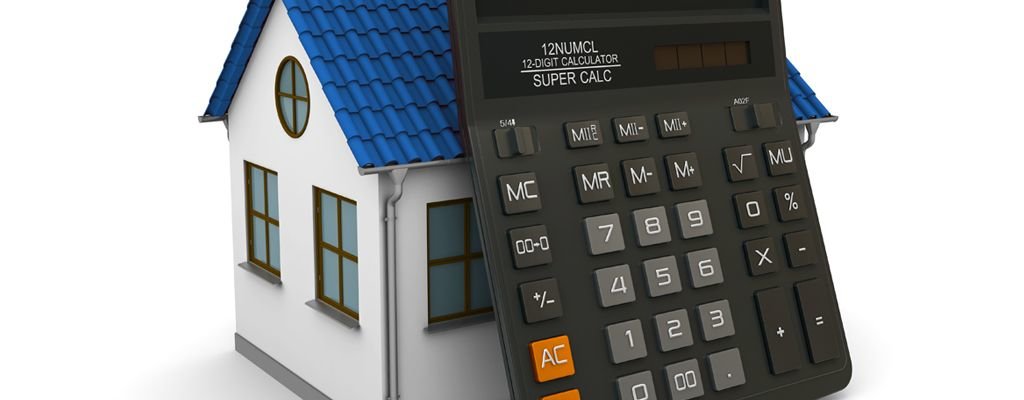It looks like everybody has a rental scary story. Perhaps it’s about a property manager whose idea of repair consists exclusively of duct tape. Maybe it’s the stress of increasing lease. Or possibly you’ve just woken up one a lot of times to find yourself sharing your bed with an unwanted colony of pests.
Whether or not the choice is made along with a parade of ants, when the pot finally does boil over, much of you will end up saying (or yelling) the very same four words: It’s time to purchase.
As interesting as that turning point is, it also brings a host of brand-new factors to consider. However prior to you can choose where to buy or what you’re searching for, you need to find out just how much house you can afford.
Determine Just How Much Home You Can Pay For
While it can be tempting to right away start searching the listings, the very first step in knowing your budget is to take these into consideration:
- Your monthly take-home income.
- The size and regards to the loan you’ll secure.
- The size of your down payment.
- The concealed expenses of homeownership.
How Much Cash Do You Actually Take House?
The very first order of organization when making a budget plan is to figure out how much of your income is actually available to you.
In general, companies quote you the amount they pay (your gross pay) rather than the amount you take home (your net pay). There are several deductions secured of your incomes for things like taxes, insurance coverage, and retirement contributions, depending on your office.
When you consider what you can manage for a brand-new home, you should constantly think of your net pay, since that’s the quantity of cash you will have at the completion of monthly.
For aid in discovering your net income, examine out our guide on how to compute net pay
For the sake of this short article, let’s presume Sam and Pat have gross household earnings of $100,000 annually. They have actually computed that this means an earnings of $68,000, or around $5,660 each month.
First Things First: The True Cost of Your HouseSave Getty Images
Buying a house is a distinct experience, unlike anything else you’ve ever bought prior to. That’s due to the fact that the rate you see at the top of the listing isn’t truly what you’ll wind up paying.
Here’s where things get difficult for the newbie buyer. Despite the fact that the home you desire has a specific worth on paper, due to included costs, along with the long-term interest on the loan you will take out to buy it, you will inevitably end up paying much more for the house over the length of the term.
In truth, based on the length of that home loan, you could pay almost double the price you bought the home for. While that’s frustrating to consider, it also has a significant effect on a few of the decisions you have to make up front, and everything begins with your funding.
Your Home Mortgage or Credit Line
Unless you have actually been saving for years– or maybe you’ve recently robbed a bank– possibilities are you will not spend for your house in cash. Most of the home purchasers will be taking out a loan to spend for the bulk of their purchase.
Obviously, as all of us know, there’s no such thing as complimentary cash. A brand-new home is a major investment, which implies any loan you get for it is a major dedication as well. When it concerns a loan of this size, there are three things that need to take the spotlight in your decision process:
Here’s What’s Actually in Your Monthly Payment
Your regular monthly payment is the overall amount you will owe on a monthly basis for the length of the loan, based on the term, the rates of interest and the principal.
- TermThe regard to a mortgage is the length of time it will take you to repay both the principal and the interest. One factor buying a new house is such a commitment is that the average term of a U.S. home loan is 30 years! Depending on your financial circumstance, however, there are choices available to make this much shorter. A 15-year term– if you can afford the greater regular monthly payment– will considerably cut down on the true price of your home.
- Rate of interestEvery loan comes with interest. This is the quantity above and beyond the principle that you need to repay to the lending institution. It is very important to note that this interest is compound interest, which means that interest is computed on a monthly basis based on the overall amount owed.
- PrincipalThis is the overall quantity that the lending institution will offer to you. For a mortgage, it’s equal to the total value of the home minus your down payment.
Unless your deposit is more than 20% of the value of the house, this payment will also consist of private home loan insurance coverage, which is a fee charged by a loan provider to guarantee them versus default.
It’s this monthly payment number more than any other element that usually figures out how much house you can afford.
Experts recommend you invest no more than 25% of your net pay on your real estate. When we apply this to Sam and Pat we discover that they would have the ability to pay for a regular monthly payment of $1,415.
Bear in mind that while the 25% suggestion is a strong one, it will not necessarily be a recommendation shared by your lending institution. In fact, your loan provider might extremely well attempt to get you to handle a bigger loan than you should.
The Value of Your Deposit
Though it’s unusual to purchase a house in cash, the quantity of money you have readily available on hand considerably influences the choice of homes you will be able to pay for.
In truth, the size of the deposit you can make on your house can change not only the cost variety of houses you’re looking for, but however also the true expense of the loan.
And the more loan you have to put down, the less the overall principal of your loan will be. With that in mind, a lot of specialists recommend paying no less than 10% of the rate of your home upfront.
Even still, 10% is not perfect. Those who are wanting to reduce their payments need to really be paying 20%. If you can pay for to put down 20% of the value of your house, you will not need to pay private mortgage insurance, which can significantly lower your regular monthly payments.
Now, Sam and Pat have actually been considering purchasing a new house for a while. (A couple of years back, they had a bad experience with a leak from the home upstairs, and they are made with that kind of thing.)
In that time, they have actually eaten primarily ramen noodles and rice, they’ve cut the cable cord and crucial of all, they’ve stayed up to date with The Cent Hoarder.
Through all that effort, they have actually handled to save $60,000. That should make considerable damage in a loan!
The Difference In Between Adjustable and Fixed Rates
Even with the most crucial considerations out of the way, there are still a number of different home loan alternatives available, with different rates of interest and repayment lengths. Here’s what to search for in fixed and adjustable rate loans:
Repaired Rate: With a fixed-rate loan, your rate of interest is secured. If it begins at 4.5%, it will constantly be 4.5%. For property buyers, this indicates that if you can get a fixed-rate home mortgage when rates are low, you will pay less general. This is the very best option for the most part.
Adjustable rate: If you choose for an adjustable-rate mortgage, then after a set period of time with a fixed rate, your interest rate can alter if the market does. There are extremely few scenarios in which this is a better option than a fixed-rate loan.
The Hidden Costs of Homeownership Save Siri Stafford/Getty Images
Naturally, there’s still more to consider. When you purchase a house, you’re not simply purchasing a structure. You’re making a financial investment. As with all financial investments, there is a substantial quantity of upkeep that you need to pay for simply to keep your home in good working order.
There are repairs and renovations, sure, but those are often unexpected and can be covered by an emergency situation fund. Regrettably, there are likewise significant anticipated expenses connected with purchasing and owning a home that requires to be factored into your base house budget plan.
Real Estate Tax
Yes, it’s constantly the taxes that get you! Every jurisdiction has its own real estate tax rate, and this is often included to your monthly loan payment.
When you’re searching for a brand-new home, you will normally discover an annual tax rate included on the listing. That number is just a price quote and will be upgraded by your town every now and then depending on the housing market.
Regardless, it’s a great approximation, and if you divide it by 12, you can get a sense of how much it will add to your monthly payment.
Home Insurance Coverage
You must never ever lack homeowner’s insurance. Lawfully, you’re not required to have a policy on a lot of home mortgages, so it may appear like an unneeded expenditure.
However, if you search to discover an excellent policy, this shouldn’t include more than $100 to your monthly payment. If disaster strikes, it may be the only thing that assists you to rebuild, which is why a great guideline to live by is: If you can’t afford home insurance coverage, you shouldn’t be buying a home.
Closing Expenses
Some of the most ignored expenses of owning a house are the fees and costs that come along with the real purchase of the property.
Given that they’re not included in the sale rate, they can capture a lot of first-time purchasers off guard. In some cases, they might even restrict the house you can manage.
That’s because, like the deposit, they frequently need to be paid in money, and will cost between 2% and 5% of the cost of the house.
What they’re actually consisted of is a prolonged list that includes legal representatives’ charges, taxes, inspection expenses and other needs that are inevitable when purchasing genuine estate (for a full list, check here). Bear in mind, however, that the buyer doesn’t normally pay any of the realtor’s costs, so a minimum of you have some reprieve there.
How would this affect Sam and Pat? Well, they need to be taking this quantity out of their cost savings, which will reduce the down payment they can make. If they desire to keep to a 20% deposit so they can prevent private home mortgage insurance coverage, it will affect their total budget for their house.
Sam and Pat: Just How Much Home Can They Pay For?
With all that in mind, how do Sam and Pat fare as a couple making $100,000 a year?
- We understand that they have an annual gross pay of $100,000, but only take house about $5,660 monthly.
- Utilizing 25% of their regular monthly earnings on housing, that provides them $1,415 to deal with.
- They’ve conserved up $60,000 in money by cutting corners and conserving, but not all of that can go to the down payment due to closing costs.
- They wish to make their down payment as high as possible to reduce their month-to-month mortgage payments. They’re aiming for 20%, so they can make the most of not having to pay personal mortgage insurance coverage.
All informed, Sam and Pat are in a respectable scenario. If they tried to find a home listed around $260,000, their 20% down payment would be $52,000, leaving them $8,000 for closing expenses– ideal in expected the range of 2% to 5%.
Even better, with a fixed-rate 30-year home loan at 4.5% interest, they ‘d just need to pay about $1,385 monthly, which consists of a $1,000 annual insurance plan and an average 1.15% residential or commercial property tax expense of $2,990 annually.
Making It Easy with a Home Loan Calculator
Luckily, you don’t have to go through all the math yourself!
There are plenty of trusted online calculators, like this one, which can estimate all of this for you using the information talked about above and make sure that you can stay delighted for the brand-new chapter in your life.
Yes, it can be frightening. But it does not need to be if you plan ahead.














Comments